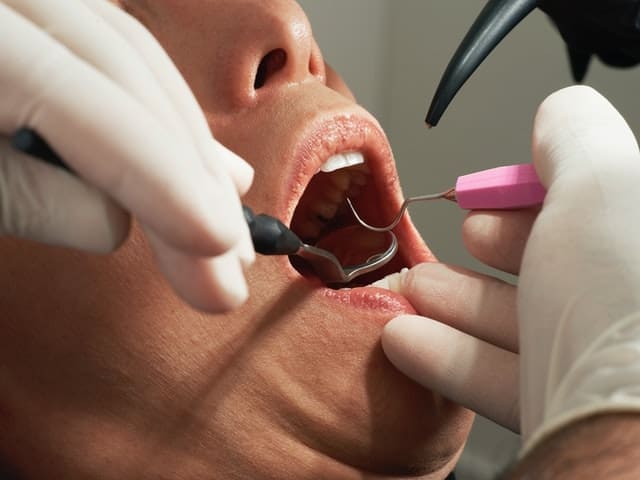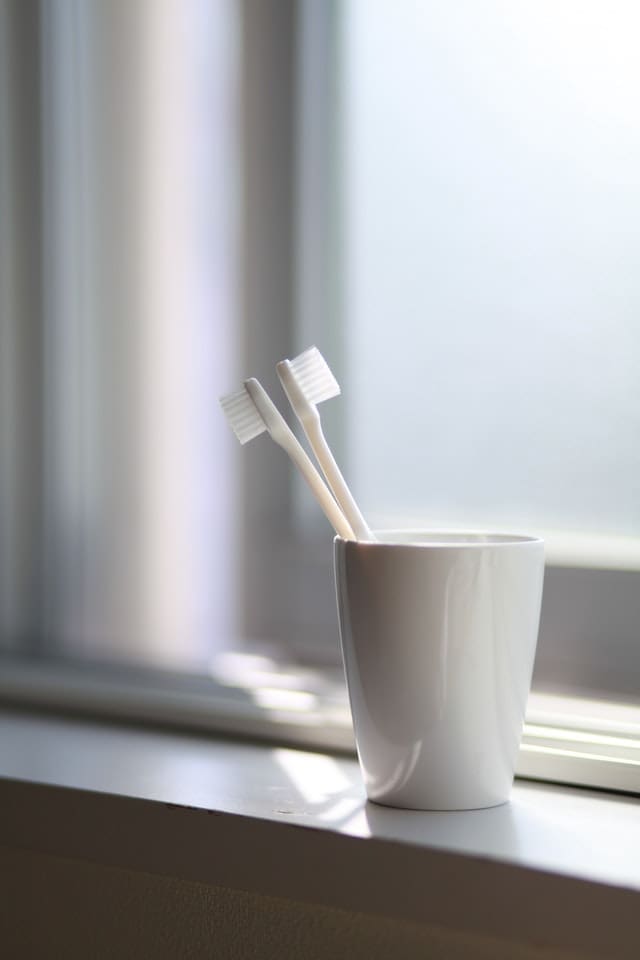When cared for properly, your teeth can last you a lifetime. As technology and dental care progress, the number of older people in need of dentures declines. As you age, your mouth changes, the nerves in your teeth become smaller, which means you often can’t feel the effects of a cavity or other dental issues. Although because of this, it also often means that they are diagnosed too late because people are unaware that they are there and so they don’t bother to have them checked. The question is then, how can you stay on top of your oral health as you age? Let’s discuss.
Aging & Teeth
Why does your chance of experiencing oral health problems increase as you age? To put it as simply as possible, as you get older, the production of new cells within the body slows down, both the skin and tissue become less elastic, and the bones get weaker. The immune system also weakens and becomes less effective at fighting off infections and germs. This affects the teeth, which makes your oral health more precarious as you age too.
There is also more wear and tear as you age. The more you have or use something, the more likely it is that you will experience issues with it, it might break down or need repairing, and the same can be said for the teeth. If you use your teeth as tools, experience trauma to them, suffer from gingivitis, periodontal disease, clench or grind your teeth, eat unhealthily, drink in excess, and smoke, then this will all contribute to the wear and tear of your teeth. Once the structure of the teeth, bone support, or tissue attachment is compromised, it can be hard to remedy, and you may experience pain, sensitivity, and loss of teeth.
Issues to Watch Out For
There are several common dental issues to watch out for as you age. Firstly, dry mouth is a common problem as you get older. It can sometimes be caused by more common issues in the aging population, like diabetes or arthritis, or due to some medications like antihistamines, muscle relaxants, or pain killers. Dry mouth occurs when the salivary glands don’t produce enough salvia. This can be a problem because saliva helps defend the teeth against acid erosion, and it is responsible for restoring minerals to your teeth. To combat dry mouth, you should make sure that you are drinking your recommended daily intake of water and brushing and flossing regularly.
Gum disease
Next up: gum disease. It is perhaps one of the most common conditions to experience as you age. It is also the leading reason behind losing teeth as you age too. Most of the time, gum disease is caused by a build-up of bacteria or other harmful substances. Both smoking and drinking can contribute and simply not keeping up with your oral hygiene as you should. It is easy to miss some of the symptoms in the earlier stages, but they increase in severity as the condition progresses. Treating gum disease will largely depend on your dentist and their prognosis, but most of the time, it is completely reversible. The earlier it is caught, the less invasive the treatments will be.

Receding gums
Another common issue to look out for is receding gums. Gum recession is a very slow process; the gums gradually shrink away from the teeth over time. Receding gums are caused by gum disease, poor dental hygiene, smoking, and teeth grinding. The teeth can become sensitive as the root of the tooth becomes more exposed, which gives the impression of the teeth lengthening. If left untreated, then there is a likelihood of significant tissue damage and even tooth loss. In this scenario, prevention is the best cure. Take your dental hygiene seriously, quit smoking, and avoid sugary foods. If it is too late for preventative measures, then go to the dentist to discuss treatment options. Most of the time, the treatment options will range from a deep cleaning or scaling to a surgical procedure like a gum graft.
Oral infections
As mentioned above, you are more likely to contract infections as you age. There are several possible oral infections. The likelihood of contracting them as you age increases because you are more likely to have a drier mouth. The saliva washes away bacteria, and without it, the bacteria build up, leading to infections. These infections, if left untreated, can migrate into your bloodstream and have catastrophic effects. Suppose you experience any pain or soreness or notice any redness or inflammation. In that case, you must make an appointment with your doctor or dentist to get it treated properly and quickly.
Enamel
Another common ailment in older people is worn enamel. The enamel is the thing protective layer that coats the surface of the teeth. It is vital; it helps to maintain the structural integrity of the tooth. However, it can naturally wear down as you age which is why it is important to invest your time and energy in maintaining the strength of the teeth. Without enamel, the teeth are far more vulnerable to damage. You cannot repair the enamel once it is damaged. That being said, it can be rejuvenated to a certain extent. Some mouthwashes and kinds of toothpaste can help to reintroduce minerals to the teeth. These minerals adhere to the weak spots in the enamel and help to fortify them against further damage.
Lastly, as you age, you are more likely to lose teeth for the reasons mentioned above. This is best prevented by regular dental check-ups and striving for good dental hygiene practices. If you find that losing a tooth or two is the best course of action for your oral health, then don’t worry; there are things that you can do. For example, you can have a dental bridge or implant fitted; this helps minimize the potential risks of leaving a gap in your teeth, but it also helps the look of your smile.
Keeping Your Teeth Healthy
The best thing that you can do for your teeth as you age is to adopt good oral hygiene habits. Brush your teeth twice a day with a high-quality toothbrush. Floss at least once a day to clean out the debris and bacteria from between your teeth. Drink tap water, the fluoride in it is incredibly good for your teeth. Finally, visit your dentist regularly for check-ups. A good dentist can advise you on lifestyle changes and preventative measures and give you a better chance of getting an early diagnosis for any issues that may arise. It would help if you felt safe and comfortable with your dentist. If you are in Brisbane, you should look up Pure Dentistry; they can be found at puredentsitry.com.au. Their practice is made up of highly skilled dental professionals with a range of specialisms. They can help you to keep your smile healthy and bright.


To Conclude
You use your mouth every day for eating, breathing, and communicating, so you need to make sure that you are looking after it to the best of your ability. This is especially true as you get older for all of the reasons mentioned above. Aging doesn’t have to be hard on your teeth; you need to make the right decisions for good oral health to look after them and yourself.
Featured Photo by Pietro Jeng from Pexels




